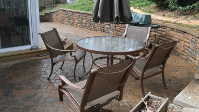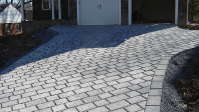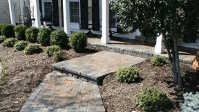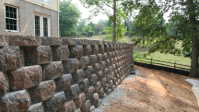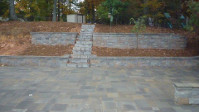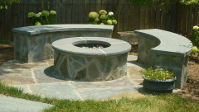Erosion control is important because it preserves the structural integrity of your home, keeps your basement from flooding, and prevents the destruction of your landscaping.
What does erosion look like?
- Worn away soil near structures
- Flooded basement
- Muddy water in the gutter or driveway
- Bare spots on your lawn or property
- Exposed tree roots
- Small rills or gullies on slopes
- Soil splashes on your windows and outside walls
- Sediment that collects in low areas or on pavement
What can you do to control the erosion?
- Add downspout or sump pump extensions (non-perforated corrugated plastic pipes) can be attached to the downspouts to direct flow further from the house. The pipes can either be laid on the ground surface or buried underground.
- Have permeable pavers and other porous natural materials installed to minimize storm-water runoff from driveways, walkways, and patios
- Plant vegetation that is better suited to your landscape conditions. Plant groundcover in areas difficult to mow (as opposed to leaving the site bare). Plant hardy shrubs and trees with deep roots, and add mulch or compost to manage moisture around roots.
- Add a french drain – a long trench dug into the ground that is filled with gravel to redirect water away from an area and carry it elsewhere.
- Amend soil where needed to make it more stable, less likely to run off.
- For areas with heavy foot traffic, stepping stones or a gravel or mulch path can be used to cover and protect eroded areas.
- For steep slopes, consider adding retaining walls or terraces, with good drainage
systems.
For more information on erosion control in Northern Virginia, please contact the erosion control specialists at Premier Paving & Planting. They will come out to your home, assess the situation, and discuss a solution tailored to the needs of your home, landscape, and budget.

